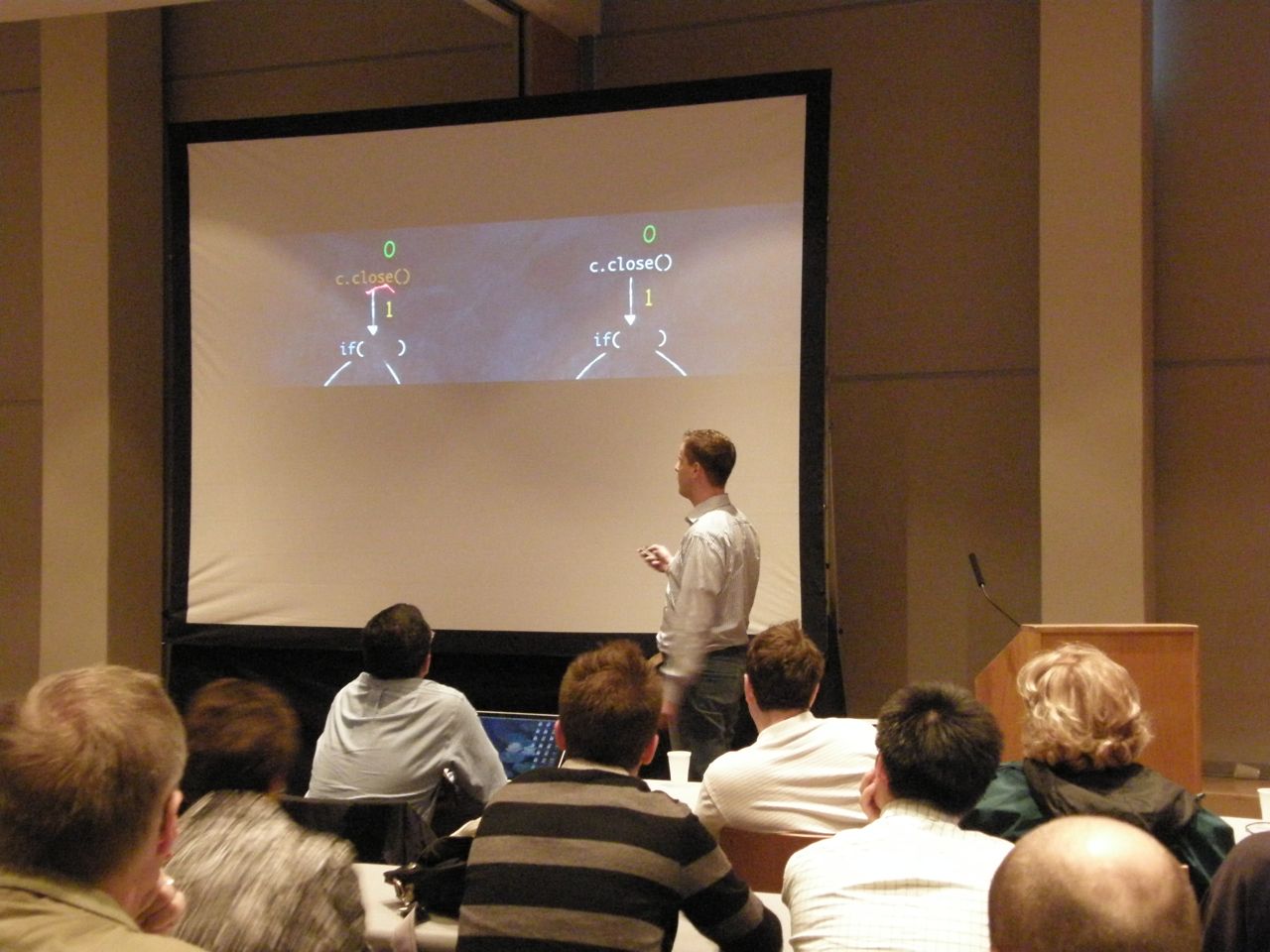
AOSD 2010 in Rennes and St Malo just finished. It was a great event, I really enjoyed the conference a lot. You can find some photos here. There was lots of interesting papers. The paper Execution Levels for Aspect-Oriented Programming by Eric Tanter won the best-paper award, certainly deserved, I think it’s great work.
It turns out that AOSD 2011 is going to be in beautiful Pernambuco, Brazil. It’s certainly going to be a great event, too. I hope to see you all there. AOSD 2011 is going to have two submission deadlines:
First Round
Research paper submission:Thursday, July 1st, 2010 (23:59 Samoan time)
Acceptance notification:Monday, September 6th, 2010 (23:59 Samoan time)
Second Round
Research paper submission:Friday, October 1st, 2010 (23:59 Samoan time)
Acceptance notification:Friday, December 10th, 2010 (23:59 Samoan time)
Camera-ready copy:Thursday, January 13th, 2011 (23:59 Samoan time)
You can submit to each round separately – both rounds are largely independent. However, if you submit to the first deadline then you have the advantage of (1) maybe having your paper accepted earlier or (2) if it gets rejected with a “resubmit again later” then you can re-submit an improved paper to the 2nd deadline. The goal is to enable a more journal-like review process that allows for correcting papers instead of having to reject them right away.

 In the past many people have asked how they can configure Soot so that it would analyze a given set of classes, but without analyzing all the internals of the JDK. Of course, such an analysis is generally unsound, but often people don’t really care – they just want to have fast results. I have often found myself in the same situation when testing whole-program analyses that I wrote myself. Every analysis run would normally take minutes to run, which can cause your day to pass by quickly when you are debugging a complicated analysis.
In the past many people have asked how they can configure Soot so that it would analyze a given set of classes, but without analyzing all the internals of the JDK. Of course, such an analysis is generally unsound, but often people don’t really care – they just want to have fast results. I have often found myself in the same situation when testing whole-program analyses that I wrote myself. Every analysis run would normally take minutes to run, which can cause your day to pass by quickly when you are debugging a complicated analysis.







